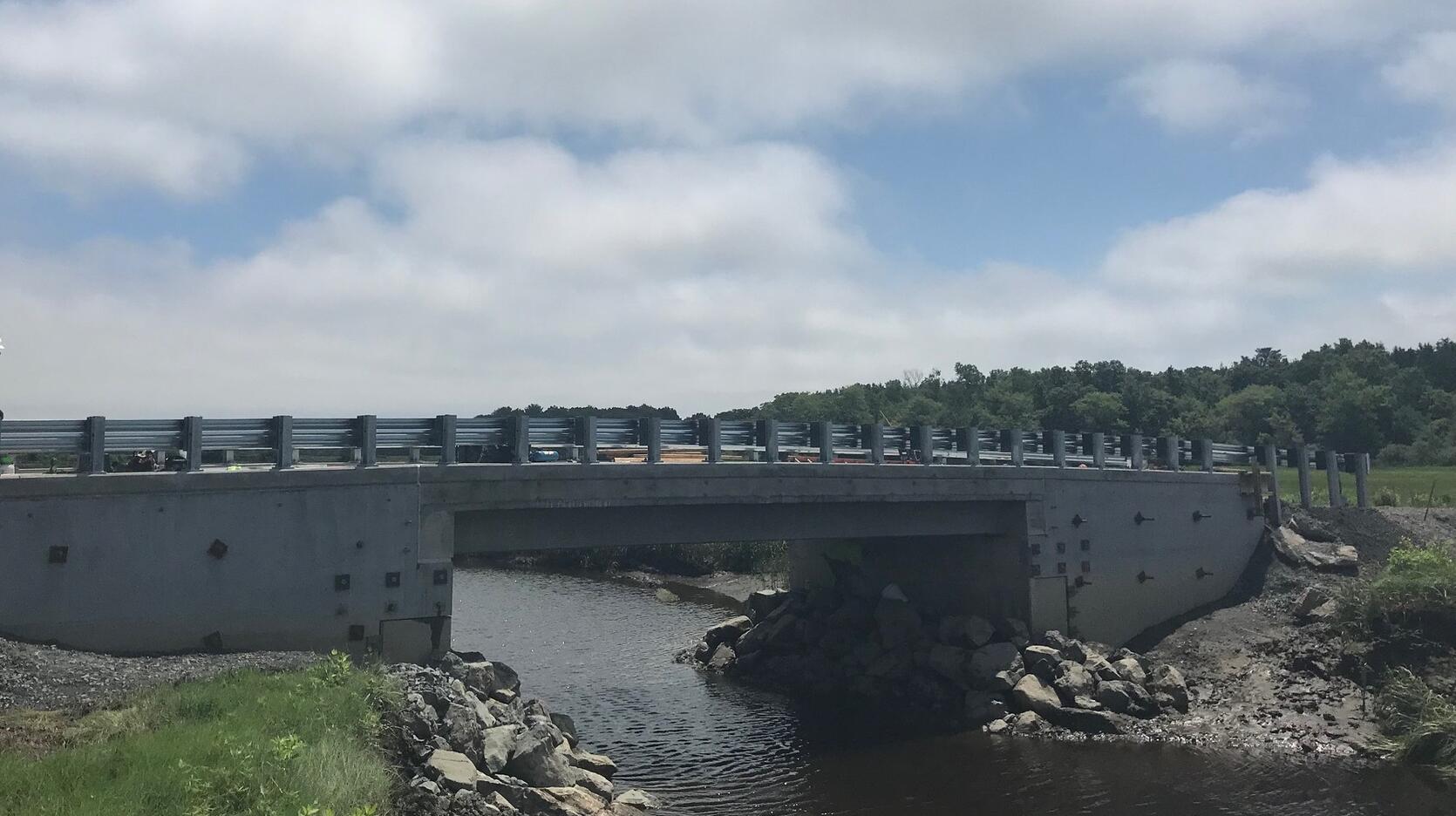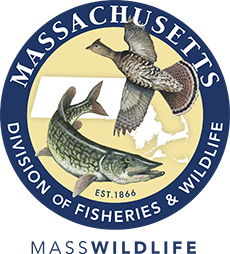- Division of Fisheries and Wildlife
Media Contact
Media Contact, MassWildlife

In mid-October, state officials, local sportsmen and women, birders, and other conservationists gathered at a newly rebuilt bridge to acknowledge a recreation and habitat restoration benchmark at Kent’s Island, part of the 2,000-acre William Forward Wildlife Management Area in Newbury. The new bridge and improved access road will provide safe on-foot access for hunters, birders, photographers, and other outdoor users to enjoy the 170-acre island and surrounding 300 acres of salt marsh. In addition, this project provides the Division of Fisheries and Wildlife (MassWildlife) the ability to access the island to implement long-planned habitat management activities to benefit migratory waterfowl, wading birds, shorebirds, salt marsh nesting birds, fish, shellfish, and other wetland species.
The undersized and deteriorated culvert and bridge restricting tidal flow was replaced. Hardened swales on the access road were installed to allow an outlet for tide water overtopping. Native saltmarsh grasses and shrubs were planted along the roadside areas of the marsh. These actions restored tidal flow and transport of sediments into 47 acres of salt marsh upstream of the bridge. The accumulating sediments will stimulate healthy growth of native salt marsh grasses and support the marsh’s ability to remain resilient and adapt to sea level rise and climate change. The saltmarsh sparrow, a recently state-listed bird under the Massachusetts Endangered Species Act, makes its home entirely in the salt marsh and will benefit from this restorative process along with a variety of other marine life.
With the renewed capacity to transport equipment, MassWildlife can implement its island habitat management and restoration plan. The goal is to create habitat for bird species experiencing population declines due to the lack of critical habitat. For example, the American black duck has experienced population declines in part due to the lack of coastal nesting habitats. To address this need, MassWildlife plans to create dense shrubland nesting habitats that black ducks and mallards prefer along the island’s edges. Mowing the current grasslands will resume.
MassWildlife has already initiated the first phase of habitat management with invasive plant control treatment. In time, stands of non-native red pine and Norway spruce plantations will be removed and converted to grassland and shrubland habitats. Selected large oaks with expansive crowns will be preserved for acorn production and other wildlife habitat needs. Finally, a prescribed burn is planned for the eastern end of the island to create oak-pin woodlands with cedar interspersions. These habitat activities will take place on about 100 acres and support the needs of other less common shrubland and grassland-loving birds such as the American kestrel, American woodcock, whip-poor-will, eastern towhee, and ruffed grouse.
The Kent’s Island Creek Restoration Project is a collaborative effort by sister divisions within the Department of Fish and Game: MassWildlife, Division of Ecological Restoration, and the Office of Fishing and Boating Access. Other partners providing technical assistance, an easement, or funding include private landowner Bob Colby, the Massachusetts Office of Coastal Zone Management, and the U.S. Fish and Wildlife Service. The project is one element of a larger multi-year, multi–phase regional conservation project that encompasses the Great Marsh—a saltmarsh ecosystem covering over 20,000 acres along the northern Massachusetts coast from West Gloucester to the New Hampshire border.
